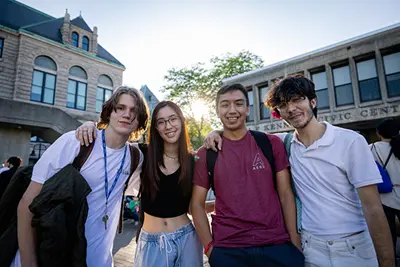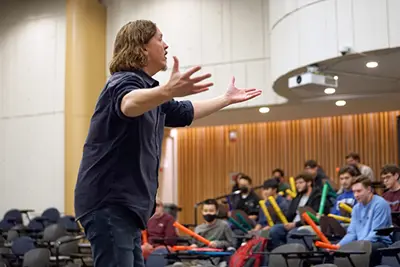UML Offers Family Orientations and More to Support Families
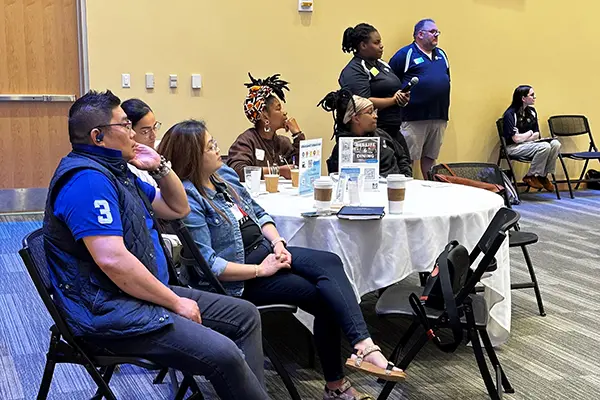 Image by K. Webster
Image by K. Webster
07/11/2023
By Katharine Webster
“College is a family journey and a family investment, not just a student journey,” says Marshall Greenleaf, director of student and family support services at UMass Lowell.
“And college is a family transition, whether your student is on campus or not,” he says. “Dynamics change, relationships change, and that’s all natural and normal.”
That’s a message Greenleaf emphasizes at every daylong family orientation – there are 10 on campus this summer – and in year-round programming that’s designed to support parents and families so that they can guide and support their students during the transition to college and beyond.
Although UMass Lowell has offered family orientations and a family newsletter for years, the Office of Family Programs was established during the COVID-19 pandemic, when the need for more frequent communication with families about a rapidly changing situation became urgent, Greenleaf says.
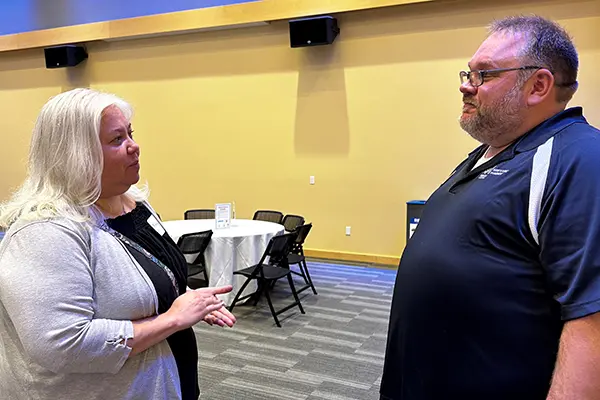 Image by K. Webster
Image by K. Webster
Now, Greenleaf, Assistant Director Rich Doria and staff from offices across campus offer a range of family events, timed to important deadlines – for example, workshops on the Free Application for Federal Student Aid (FAFSA) in late summer and sessions on advising and course registration in October.
“We try to be super-timely,” says Greenleaf, who is on the national board of AHEPPP, an organization for parent and family engagement professionals in higher education.
The biggest annual family event is Family Weekend, which this year will run from Friday, Oct. 20 to Sunday, Oct. 22. Greenleaf says it’s timed to coincide with the period when new students are starting to “get a feel” for college life.
“We want parents and families to come back to campus and feel like their student is excited to share their experience here,” he says. “And we want parents and families to feel like they’re part of the community, because they are.”
Greenleaf recently spoke about the new and expanded events and services offered by his office, as well as what family members can expect as students transition from high school to college.
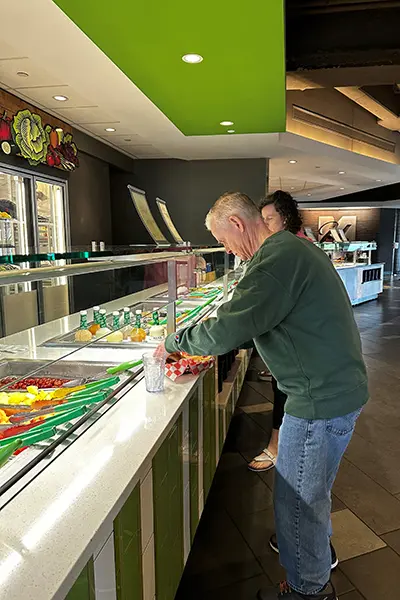 Image by K. Webster
Image by K. Webster
Q: A big part of going to college is learning how to take on adult responsibilities. How do you respond to family members who are hearing from their first-year student about roommate conflicts, worries about midterm exams and anxieties about making friends and fitting in?
A: We sometimes try to take a beat and say, “How are you doing with it?” It can be difficult for family members because they can’t just jump in and fix things. Often, they just want to hear from us that what they and their student are feeling and experiencing is natural and normal.
The transition to college is hard, and we emphasize that supportive and open family communication is really important. We talk about framing conversations in the context of that transition, with the understanding that an important part of college is for students to try new things and learn how to solve their own problems, and even to deal with temporary setbacks and failure.
We also build that communication piece into our website and every Family Orientation and workshop. Of course, we talk about information and resources, but we also talk about how parents can start a conversation on a topic they find uncomfortable, such as sexual health or alcohol use – and about how that conversation might be different now that their student is exploring who they are more independently.
Q: What’s the biggest change for families when students first start college?
A:School communications. When students are in K-12 schools, educators can discuss issues and concerns with their parents and guardians. But as soon as a student turns 18 and becomes an adult, laws on privacy in education and health information apply. That means that we can’t discuss grades, money or health without the student’s permission – not even with their parents.
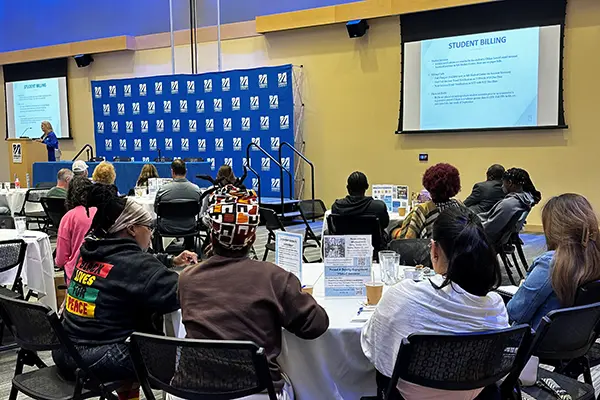 Image by K. Webster
Image by K. Webster
If family members expect their students to share certain information, it’s important for them to talk about that up front. We let them know that students can fill out a form that allows family members to view their academic and financial information in the Student Information System (SiS).
Q: What if a family member is concerned that their student is having a mental health crisis, or is in danger of flunking a class, or is drinking too much?
A: Nothing prevents family members from contacting us if they have a concern, and we strongly encourage them to do that. We will absolutely listen, talk with them about next steps and connect them with the experts and resources on campus that can help. A lot of times, family members just want to know what the process is for addressing an issue.
We also say, “You know your student better than anyone.” If they think their student is experiencing something more serious than natural and normal homesickness, social challenges or academic struggles, they can file a STARS (Student at Risk) report, which will trigger outreach to the student by UML’s behavioral intervention team. UML faculty and staff may also file a STARS report if they have a serious concern about academic performance, mental health, substance use or physical violence.
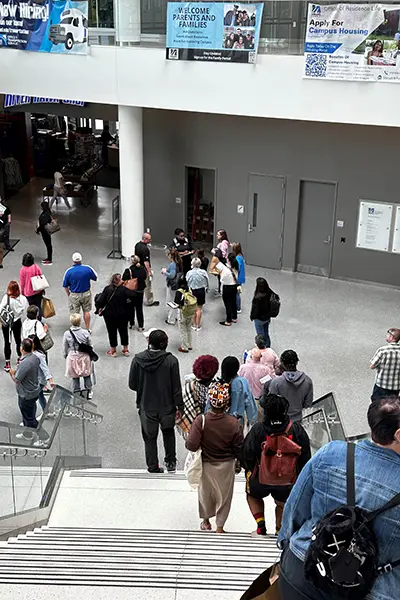 Image by K. Webster
Image by K. Webster
Q: What are some of the biggest family worries, and what new programs and services are you offering to address them?
A: In the last couple of years, we’ve heard from a lot of parents and families who are concerned about student mental health. We recently offered a daylong workshop on mental health first aid, led by Melissa Wall, UML’s director of prevention and education, and 20 family members attended.
We also offer shorter online workshops for families on supporting student mental health, using health services, academic support services and career services, and financial aid, among other topics. And our student workers help us share useful information on social media, including our Facebook page.
We’re especially excited about our Family Portal, which is interactive and resembles a social media platform. Anyone – a parent, family member or student supporter – can sign up. It includes a university calendar, and it can be customized to each user’s interests.
Every user is automatically enrolled in the “Parent and Family News” community, where they can ask questions and communicate with us and other families. People can sign up for other communities, too, such as ones that focuses on student-athletes or career-related internships and co-ops. All kinds of useful and timely information feeds to those groups, and staff from different student-serving offices respond to questions and comments.
Q: How can parents and families get more involved in supporting UML and their students’ education?
A: We have a new River Hawk Family Association that parents, family members and supporters can join. Members give us feedback on what their students are experiencing and their own concerns, and they have an opportunity to hear from administrators once a semester.
Some more experienced family members have already served on virtual panels for first-time college parents. And in the future, we hope to get them more involved in volunteer efforts, like donation drives for the UML Strive Food Pantry.



